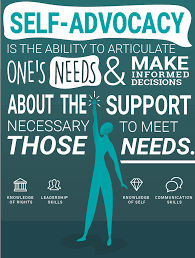Helping neurodivergent students self-advocate in college is crucial for their success. Here are some tips and strategies to support them:
- Education about Neurodiversity: Start by educating students about neurodiversity, including their own neurodivergence. Understanding their strengths and challenges can empower them to advocate for their needs effectively.
- Self-awareness and Acceptance: Encourage students to understand their learning styles, preferences, and any accommodations they may require. Acceptance of their neurodivergence is key to self-advocacy.
- Know Their Rights: Ensure that students are aware of their rights under the Americans with Disabilities Act (ADA) and any other relevant laws. This includes understanding what accommodations they are entitled to and how to request them.
- Develop Self-Advocacy Skills: Teach students how to communicate their needs clearly and assertively. Role-playing scenarios can help them practice self-advocacy in various situations, such as requesting accommodations from professors or discussing accommodations with disability services.
- Build a Support Network: Encourage students to connect with disability support services on campus, as well as professors, advisors, and peers who can provide support and guidance.
- Document Accommodations: Help students gather documentation of their neurodivergence and any previous accommodations they received in high school. This documentation can support their requests for accommodations in college.
- Encourage Independence: While it’s important to provide support, encourage students to take ownership of their education and self-advocacy efforts. This includes advocating for themselves in meetings with professors and navigating campus resources independently.
- Provide Resources: Share resources and tools that can assist students in their self-advocacy efforts, such as templates for accommodation request letters, guides on navigating college policies, and apps for organization and time management.
- Foster Resilience: Help students develop resilience and coping strategies for dealing with challenges they may encounter. Please encourage them to seek support when needed and remind them that it’s okay to ask for help.
- Celebrate Successes: Recognize and celebrate the achievements and progress of neurodivergent students in self-advocacy. Positive reinforcement can boost their confidence and motivation to continue advocating for themselves.
 By providing education, support, and resources, you can empower neurodivergent students to effectively self-advocate and succeed in college.
By providing education, support, and resources, you can empower neurodivergent students to effectively self-advocate and succeed in college.

